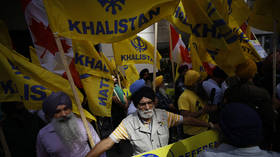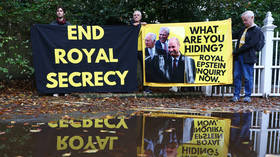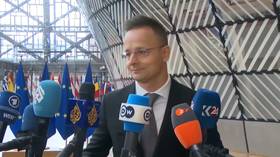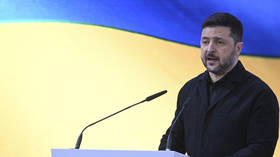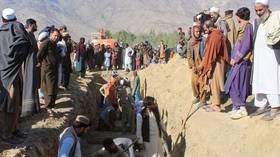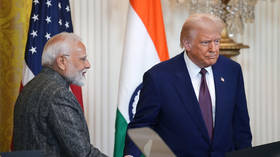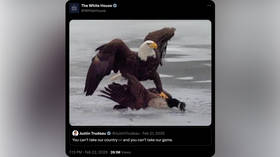India claims Canadian government ‘smearing’ it for ‘political gain’
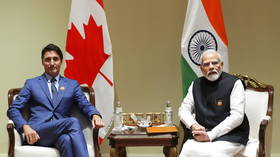
The Indian Ministry of Foreign Affairs summoned the Canadian envoy on Monday, and said it had decided to withdraw its high commissioner and other diplomats from the country as it has “no faith” in Ottawa’s commitment to ensuring their security.
Earlier in the day, New Delhi issued a rebuke to the Canadian government over the alleged targeting of Indian diplomats residing in Canada. In a statement, the Foreign Ministry accused the Prime Minister Justin Trudeau-led government of a “deliberate strategy of smearing India for political gains.”
New Delhi said it had received a diplomatic communication from Canada suggesting that the Indian high commissioner and other diplomats were persons of interest in a Canadian investigation. India said it reserves the right “to take further steps in response to these latest efforts of the Canadian Government to concoct allegations” against Indian diplomats.
In a speech before parliament last September, Trudeau alleged that India had a hand in the assassination of Sikh separatist leader Hardeep Singh Nijjar, triggering a bitter diplomatic row with New Delhi. Nijjar, who was gunned down in British Columbia, Canada, championed the cause for a separate nation-state for Sikhs – Khalistan – to be carved out of India.
India vehemently denied the charges and sought evidence from Canada to back its claims. Since Trudeau made the allegations, the Canadian government has not shared “a shred of evidence with India despite many requests” from New Delhi, the Foreign Ministry said on Monday.
“The Government of India strongly rejects these preposterous imputations and ascribes them to the political agenda of the Trudeau Government which is centered around vote bank politics,” it added.
“The Trudeau Government has consciously provided space to violent extremists and terrorists to harass, threaten and intimidate Indian diplomats and community leaders in Canada,” New Delhi stated on Monday.
India has repeatedly accused Canada of harboring extremists on its soil, claiming Ottawa appeases them for political gain. The 1.8-million strong Indian diaspora in Canada, mostly of Sikh ethnicity, is an influential bloc in Canadian politics.
The Foreign Ministry also accused Trudeau of being “hostile” towards India, citing “naked interference” in India’s internal politics in December 2020.
The allegations caused a significant setback to Canadian-Indian relations. New Delhi briefly suspended visas for Canadians, citing threats to its diplomats, and asked Canada to reduce the strength of its missions in India in the early days of the row. Discussions for a free trade agreement between the two nations have also come to a standstill.
The Nijjar case has been linked to an assassination attempt against Gurpatwant Singh Pannun, a major leader of the Khalistan movement based in New York. Pannun holds both Canadian and American citizenship.
Last November, US prosecutors accused an Indian national, Nikhil Gupta, of taking part in a foiled plot to assassinate Pannun, alleging that he was working with an unnamed Indian government official. New Delhi formed a special committee to probe “relevant aspects” of the case.
Media reports indicated that the US and Canada shared inputs linked to both cases as the two countries are part of the Five Eyes intelligence group, which also includes the UK, Australia, and New Zealand. It has reportedly played a key role in collecting evidence against India.
